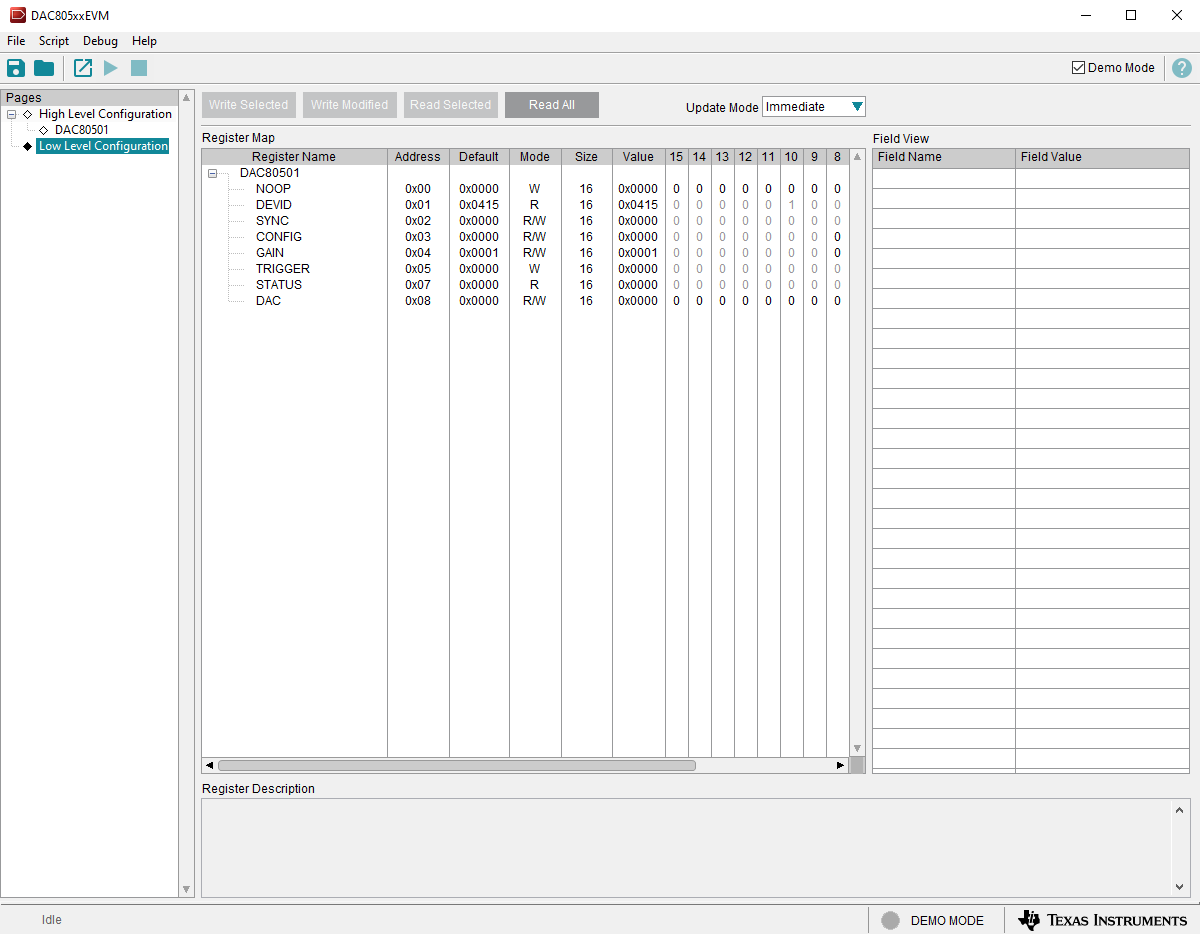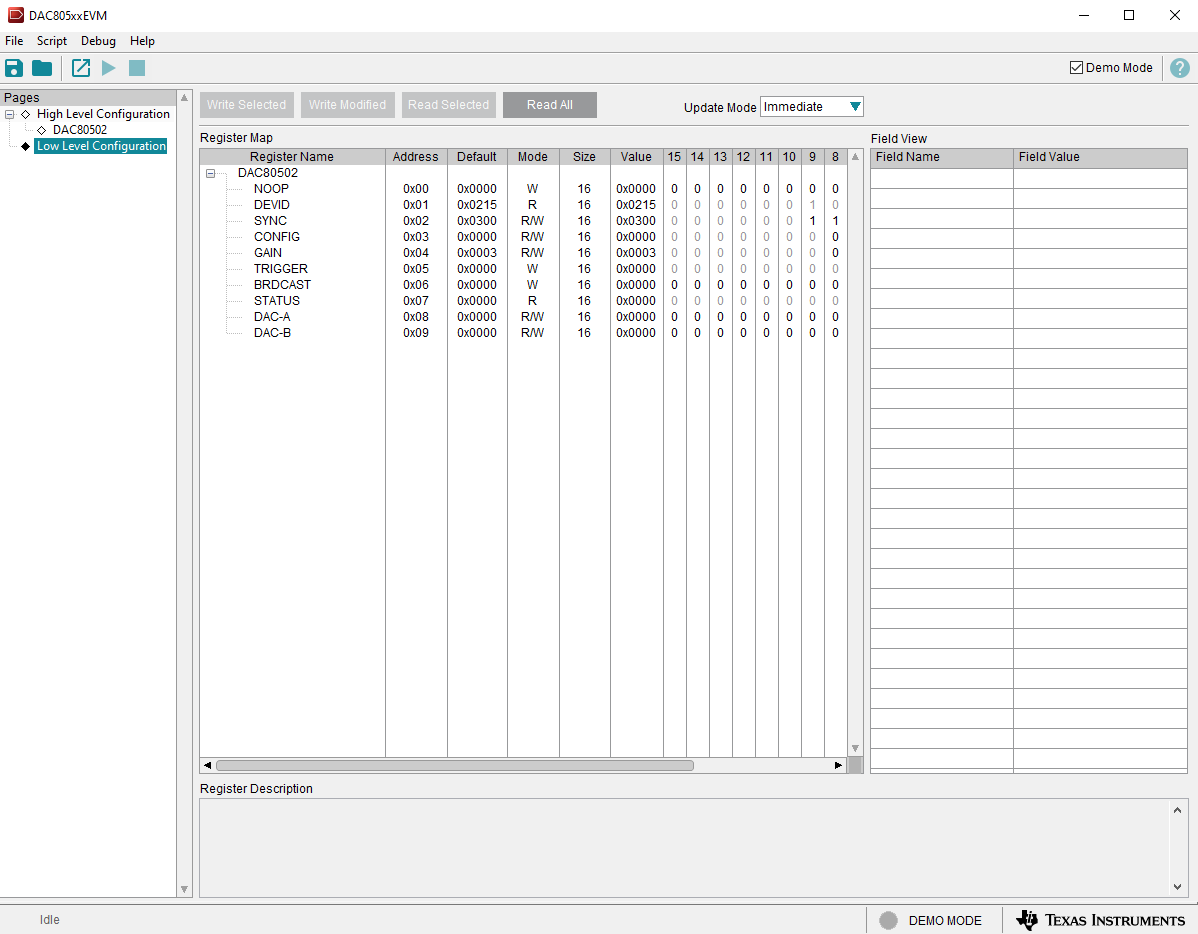SLAU919 November 2023
3.2.2.1 Low Level Configuration Page
Figure 4-8 shows the Low Level Configuration page of the DAC805xxEVM GUI. This page allows direct access to all registers on the DAC80501. Figure 4-9 shows the Low Level Configuration page for the DAC80502.
The Register Map section in the center of the page lists all the registers. Directly above the Register Map section are four buttons that allow for read and write access to all registers.
Select a register on the Register Map list to show a description of the values in that register, as well as information on the register address, default value, size, and current value. Data are written to the registers by entering a value in the value column of the GUI.
 Figure 3-8 DAC80501 Low Level Configuration Page
Figure 3-8 DAC80501 Low Level Configuration Page Figure 3-9 DAC80502 Low Level Configuration Page
Figure 3-9 DAC80502 Low Level Configuration Page